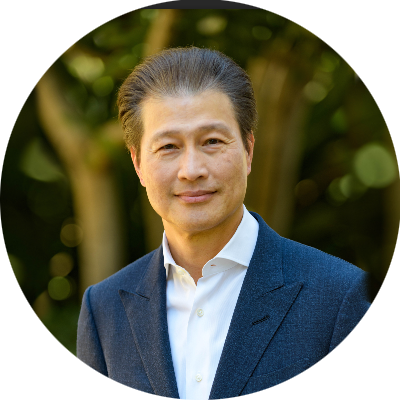Dialogues
Dominic Ng in Conversation with the 11th U.S. Trade Representative Mickey Kantor

(Manny Ceneta/AFP via Getty Images)

On November 11-16 the United States hosted the Asia-Pacific Economic Cooperation’s (APEC) APEC Economic Leaders’ Week (AELW), marking the 30th anniversary of APEC’s inaugural conference hosted by President Clinton on Blake Island.
East West Bank Chairman and CEO Dominic Ng, Chair of the Asia-Pacific Economic Cooperation Business Advisory Council (ABAC), spoke with Mickey Kantor, architect behind the creation of NAFTA, WTO, and APEC to discuss how trade plays a vital role in building bridges between countries, how the private sector must use its influence to overcome political barriers, and how state and local governments are taking a lead in forging economic ties with the Asia-Pacific.
Dominic Ng: Why is it important for the United States to engage in APEC?
Mickey Kantor: If we do not shape the global economy we will be shaped by it. Globalization is not going away, and U.S. businesses are not going to suddenly withdraw their investments from around the world. Through APEC, the U.S. seeks to advance a free, fair, and open economic policy agenda that benefits U.S. workers, businesses, and families. The 21 APEC member economies account for nearly 50% of global trade, more than 60% of U.S. exports, have directly invested an estimated $1.7 trillion in the U.S., and employed 2.3 million Americans as of 2020. Our involvement in APEC provides a unique opportunity to show economic leadership and multilateralism, and highlight the direct impact of that engagement on prosperity in the U.S.
Dominic Ng: How does economic engagement help build a foundation for cooperation between countries on other issues?
Mickey Kantor: Building bridges between the United States and the Asia-Pacific is crucial because the global economy is more interconnected and interdependent than ever. If you do not have a good financial relationship or economic relationship with other nations, it’s hard to build relationships on other key issues and move forward in substantive areas like managing climate change and tackling issues like subsidies.
Dominic Ng: What role does the private sector play in fostering greater economic cooperation between the United States and the Asia-Pacific?
Mickey Kantor: We have to listen to business leaders because they’re focused on the bottom line—they’re focused on economic interests and developing efficient ways to find markets for their products. The private sector has an important job to do: educate the American public about the importance of not just international trade, but international trade relations. Trade agreements should not be negotiated exclusively by governments. One of the reasons NAFTA passed is because the private sector—both large and small business leaders—weighed in.

(l-r, Monica Hardy Whaley, President, National Center for APEC; Mickey Kantor; Dominic Ng; John Emerson, Vice Chair, Capital Group International; Ambassador Matt Murray, U.S. Senior Official for APEC)
Dominic Ng: What are some key steps the U.S. and Asia-Pacific economies can take to build relationships and trust?
Mickey Kantor: Building trade agreements is about building relationships. You have to get to know people personally if you're going negotiate with them. Our relationship with China needs to be reviewed, but we can walk and chew gum at the same time. You can be tough with China on certain areas—and there certainly are areas where China needs to be held to account. But in other areas, we can work with them, and we must.
China today has clearly decided to open up and enter into regional trade agreements. As that's happening, the U.S. is being left behind. We’re leaving ourselves behind on purpose not because we've been left out. Everybody wants us in but instead we’ve isolated ourselves.
Dominic Ng: How are state and local governments in the U.S. stepping up to forge global trade partnerships in ways the federal government is not?
Mickey Kantor: There isn't a governor or big city mayor who doesn't have an international trade initiative or trade policy. Mayors and governors see firsthand the value of forging international economic partnerships with Asia. Mayors and governors have also done a better job educating their constituents about the real-world impact of favorable global economic alliances. They better understand the value of foreign trade in creating jobs, advancing broad economic prosperity, and creating an equitable and inclusive future for their constituents. President Biden’s Inflation Reduction Act and the bipartisan Infrastructure Law have created phenomenal opportunities for governors to go outside of the U.S. and bring back investment for businesses.
Dominic Ng: Are you optimistic about the future of global economies’ ability to develop new, forward-looking trade agreements?
Mickey Kantor: I’m optimistic when I look at what’s happening at the local level. We need to do a better job explaining to people the value and benefit of creating new trade agreements and reworking existing ones. Organizations like APEC can make a big difference both on the private and public side. We have a real opportunity with APEC to help move the largest democracy in the world to a position where we can begin to make new progress in trade. Times change, technologies change, and relationships change. Every country must be flexible enough to say, “We need to alter where we are in a particular area.” And then you must listen to people, particularly in the private sector, because they aren’t hindered by politics.

